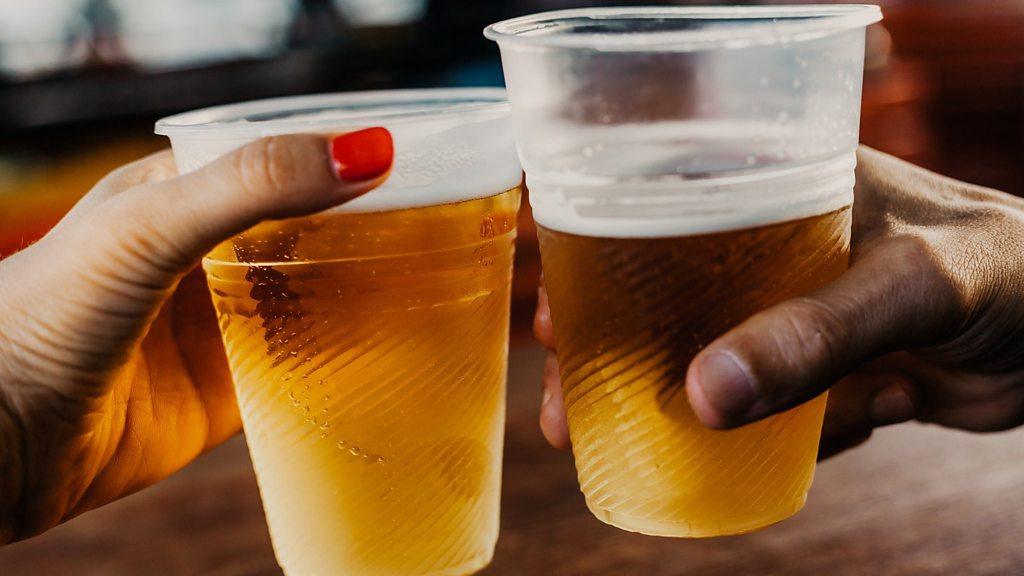Pig welfare at risk as CO2 shortage bites food industry
- Published
- comments
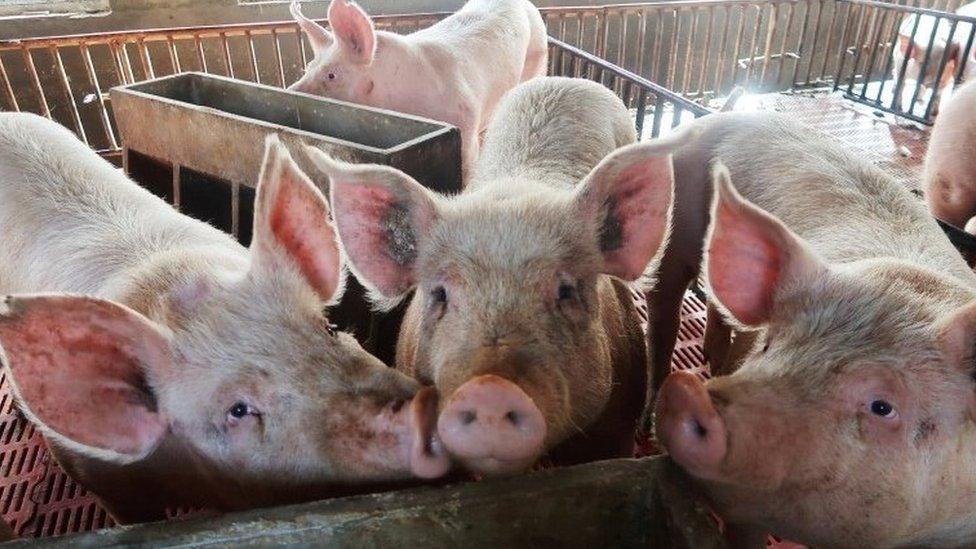
Scotland's biggest pig processor is set to run out of carbon dioxide on Tuesday, leaving it in danger of welfare issues such as overcrowding.
The gas, which is used to stun farm animals and put the fizz in carbonated drinks, is in short supply in Europe.
Quality Pork Limited, which puts about 6,000 pigs a week through its abattoir in Brechin, may have to send some animals to England.
However, its sister plant in England is also facing CO2 shortages.
Food and drinks firms are scaling back operations because of a shortage of CO2.
At least five gas producers in northern Europe have been offline for maintenance, according to the publication Gasworld, external.
And seasonal maintenance shutdowns have left the UK with only one big CO2 producer in action.
Quality Pork Limited, which operates in collaboration with UK-wide meat processor Tulip and the Scottish Pork Producers (SPP) co-operative, uses CO2 as part of a pre-slaughter stunning process.
It will run out of the gas on Tuesday.
SPP chief executive Andy McGowan told the BBC that the abattoir would start to see animal welfare issues develop within a few days because of overcrowding.
"We can send some pigs to England, to our sister factories at Tulip. But that is not a long-term solution. They, too, are seeing CO2 shortages," he said.
'Limited information'
Mr McGowan said he had little idea when CO2 shipments would resume. "One of the challenges is that we are not getting any sort of commitment from the gas companies. It makes planning difficult".
Tulip said it had sought approval from regulators so that Scottish pigs processed in its English abattoirs could still carry a Quality Meat Scotland kitemark.
"We remain extremely concerned about the lack of CO2," said a spokesman for Tulip. "We are in regular communication with our supply partners… although there is currently very limited information."
Drink-makers have also been hit by the shortage.
On Monday, Coca-Cola said it had "temporarily paused" some production while the Holden's beer bottling company in the West Midlands said its facility in Dudley stopped work on Friday.
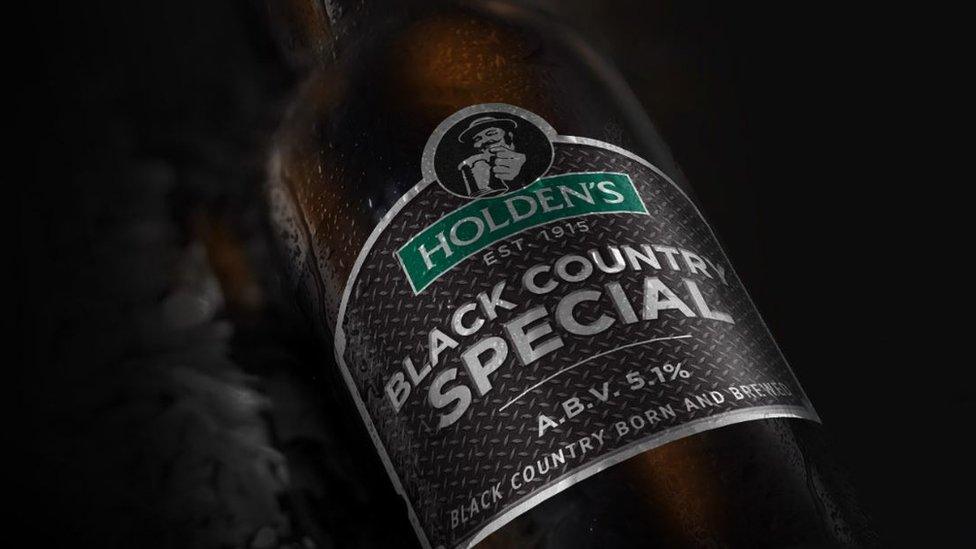
Mark Hammond, operations director at the Holden's bottling plant, said "We are going to do maintenance and a deep clean. But as of [Monday] morning, we have 25 people sitting around doing nothing."
He said "CO2 is an absolutely vital component. It's the equivalent of diesel in the haulage industry."
The plant does not just bottle Holden's beer but has about 80 customers.
Mr Hammond has no idea when his supplies might resume. Although the gas industry says things will start returning to normal in early July, he fears firms like his will be at the back of the queue for fresh supplies.
"We are a small firm, and there's obviously great demand across the sector," he said. "We are not getting good communication from CO2 suppliers."
Delivery priority
The meat industry hopes that it will be given delivery priority as more CO2 supplies come onto the market.
"Our processors deal with live animals," said the UK's Meat Processors' Association. "The CO2 shortage has the potential to become an animal welfare issue. We have been asking to be treated as a priority."
The British Poultry Association (BPA) said: "We are involved with live animals. They are a priority."
A BPA spokesman said many of his members had only enough CO2 "to keep ticking over". He added: "We are maintaining production by stretching our gas. But people are living day-to-day."
However, small firms fear they will be a low priority when suppliers ramp up distribution for their big customers.
Mike Cherry, national chairman of the Federation of Small Businesses, said the CO2 shortage could disrupt hundreds of small suppliers.
"This unexpected disruption will cause a shockwave throughout many supply chains with smaller firms lower down being the first hit and the last to recover."
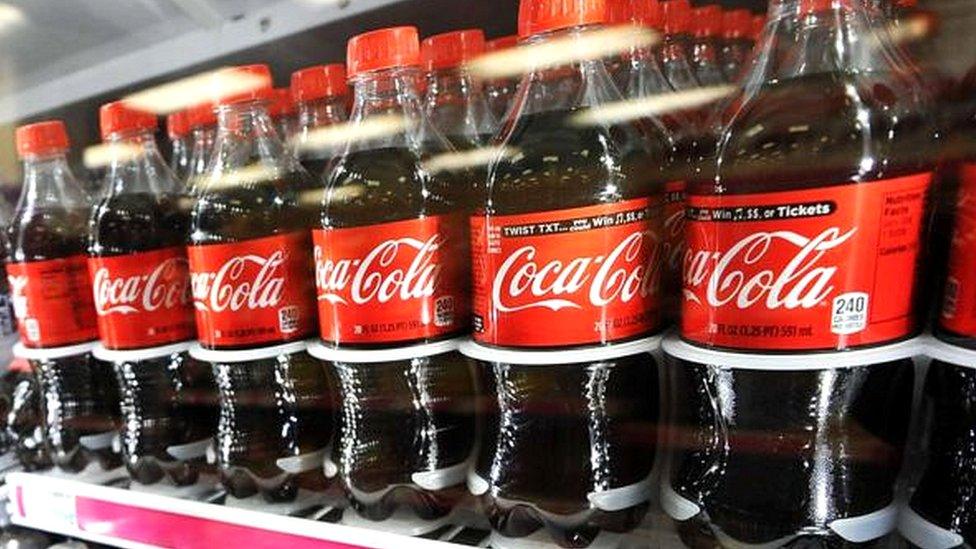
However, bigger firms are also feeling the squeeze. On Monday, Coca-Cola said its soft drinks production line was disrupted by carbon dioxide shortages, although supplies to customers have not been affected.
The company said: "We are working closely with our suppliers, partners and customers on a number of solutions as the situation develops."
Last week, drinks giant Heineken said its John Smith's Extra Smooth and Amstel had already been hit.
The company said on Monday that it had no fresh information on when things might return to normal. "We are still working through the issue with customers and trying to minimise disruption," said a spokeswoman.
- Published21 June 2018
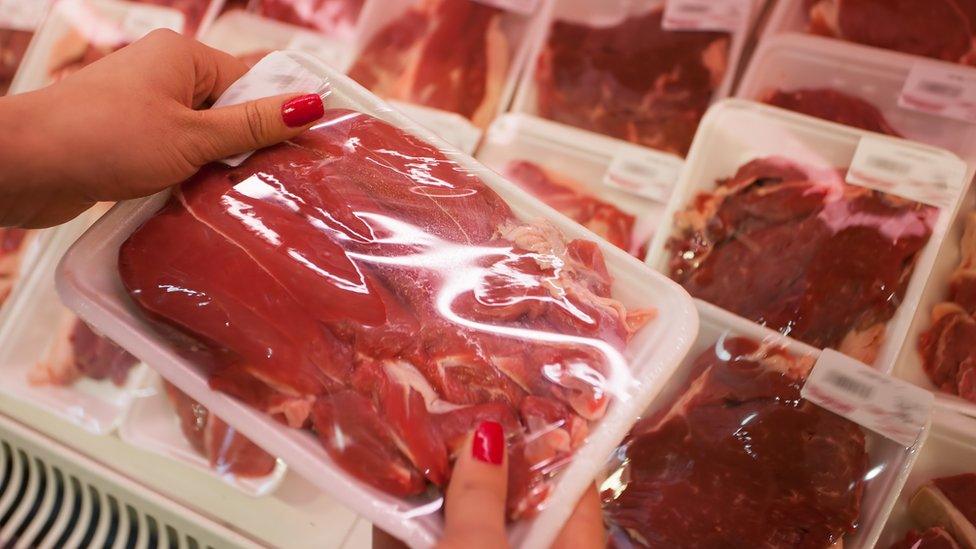
- Published20 June 2018
